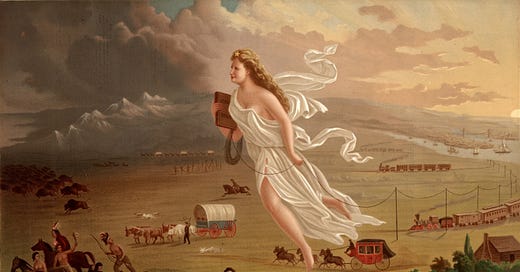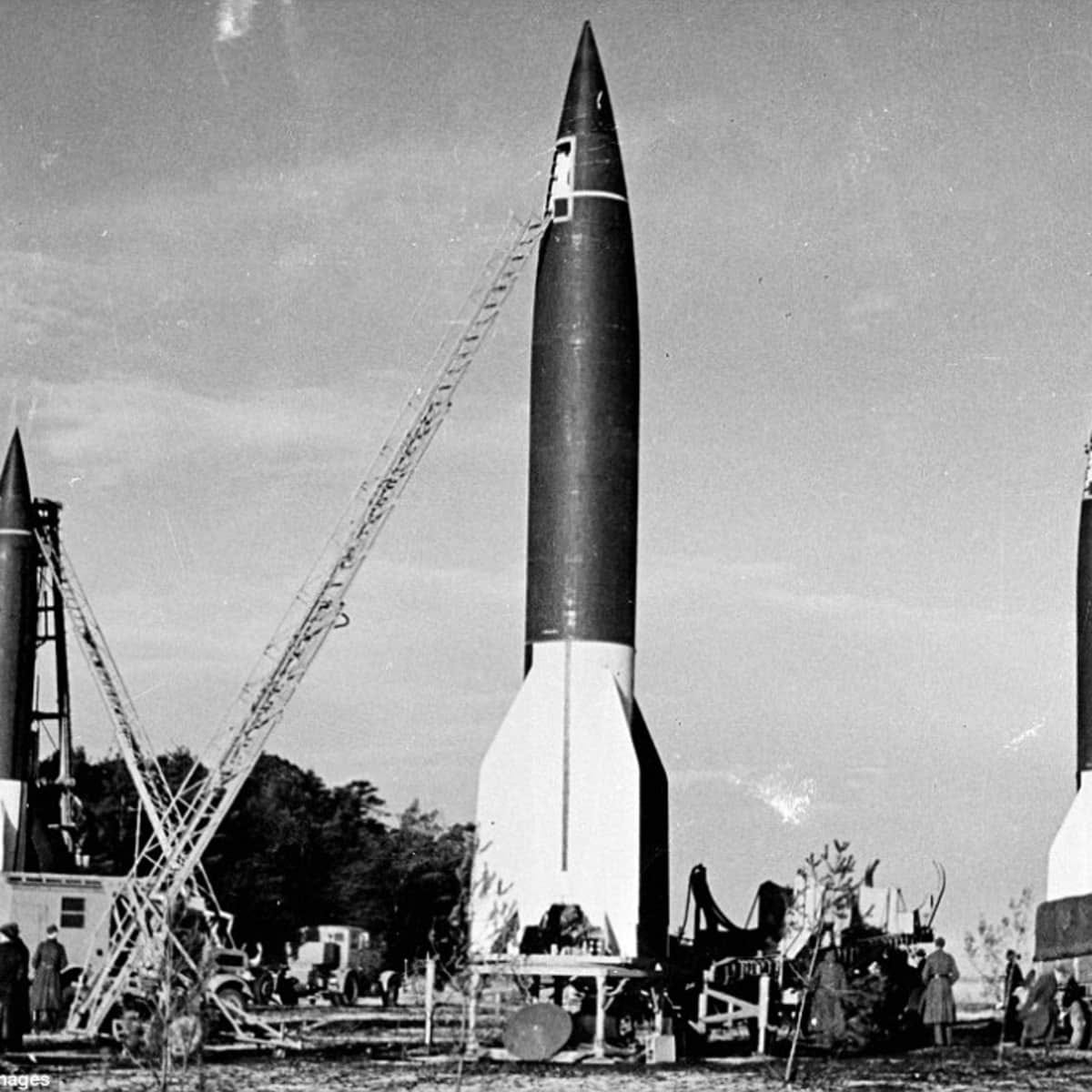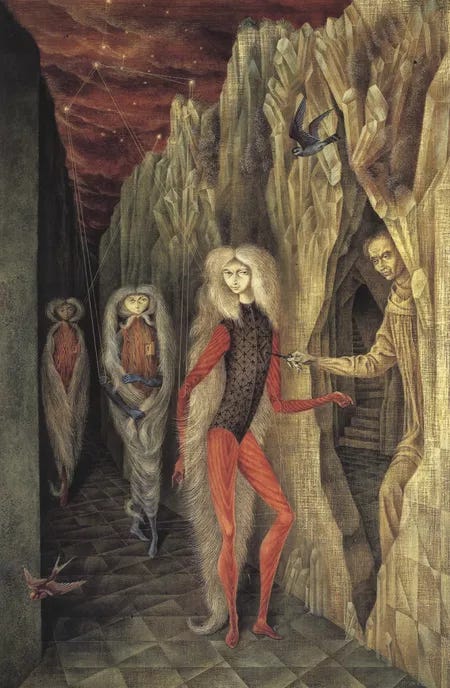Gravity's Rainbow - Part 1 - Chapter 4.2: A History of Enlightenment
Analysis of Gravity's Rainbow, Part 1 - Chapter 4.2: Slothrop's Family History (2/2)
Slothrop was not one to give into the pure nihilism that we left him at last time. He has instead, although faltering for a bit, “become obsessed with the idea of a rocket with his name written on it" (25) and, along with that, the idea that he specifically is being targeted by Them. Who are these capitalized entities? Even though we know on a explicit level who are launching these rockets, it is “far far beyond Nazi Germany” (25) for Slothrop is not just the amalgamation of all Americans — he is America’s past, present, and future, the future largely existing some twenty years onward: the sixties. While Nazi Germany may be the perpetrator of this novel, one must read the capitalized They (capitalized being a double-entendre) as all outgrowths or parallels of Nazi Germany as well. Each American and non-American intelligence agency, the elite progenitors, oil barons, right wing political donors — both the ones out in the open and the one’s whose “names [you] have never heard” (3).
He begins to contemplate then what the rocket has done to our existence. It is not simply a “bullet with fins” (25). Yes, as with this purported bullet it is likely we may die without ever having heard the shot. But with bullets, while you may not hear them, those in war who lose their lives to these objects are aware that their coming may occur at any moment. They have come to terms that their death is, if not inevitable, quite likely. However, the rocket is different. The rocket may strike anywhere at any time, on any soldier or civilian, while you are in battle or at a ceasefire, when going to the store or are seated at the movies. It is what is meant that They have taken our death away from us. There is nowhere that we are safe — we have lost the concept of what safe even means — and when that space we had, whether it be a home or school or hospital, becomes the next target, we’ll be gone before we hear the shot, before we have a chance to say goodbye to ourselves.
So comes the mention of Slothrop’s erection — erection? “well great God where’d that come from?” (26) — near the time of a bomb drop. It is a part of Slothrop’s family’s sensitivity to “what is revealed in the sky,” (26) America’s erotic and pornographic obsession with death and violence. (It is far more than that too, but we’ll get there). Our first, William, discussed in the previous section as "the first transatlantic Slothrop" (21) likely believed that the God pointed him to America as some form of Manifest Destiny, and then onward to Constant Slothrop and his son Variable, also seeing the "stone hand pointing out of the secular clouds" (27) — their names showing the wavering beliefs and stability with each passing generation where the belief of the individual that they are destined for something great diminishes, while the Free Market around them begins to thrive.
Even their jobs track with America’s own history — they were fur traders and builders of tanneries, the typical makeup of working-class Americans in a time long gone. The world around them already began to take shape as an unreal institution with "fake-Athenian monuments" and "stock portfolios more intricate than any genealogy" (27). America began integrating false forms of culture and history to build its own that didn’t exist and then installed institutions that had no bearing or meaning to them other than to make those who owned them, or controlled them, rich. No wonder each subsequent generation began to lose faith that their death meant something. Maybe death has been lost a long time before.
So while Slothrop is America, he is also the bones that hold America together. He is us, in all our imperfections, our paranoias, our insecurities. He is the good man with good intentions, though they may not always come out as planned. He comes from a long line of working-class people: "They were not aristocrats" and "about all they did was persist (28), yet they still were forced to participate in the nefarious aspects of their country’s being, because that is literally all they could do to survive.
Our Slothrop was born among all of this chaos in a world where the true small business now held no power, where all that we once knew as luxurious and chic was shattered, where the much-desired lawn is grown over and dry. The world, having been run on such a thin edge, was no longer able to maintain its façade — the Depression arose, and the poor fell under, barely able to survive, and the game was up for a moment. Though, while most of America would be placated by their financial recovery, willing to put the blinders back on, Slothrop was not so eager. He saw America for what it was, questioned, "what Lights were these? What ghosts in command? And suppose, in the next moment, all of it, the complete night, were to go out of control and curtains part to show us [an America] no one had guessed at" (29). So finally, back in the present, a new hand presents itself pointing out of the clouds: our — Slothrop’s — new God. The rocket.
Hopefully this two-part analysis worked. I would have made it more thematically cohesive, but I’m trying to mostly move through the chapters chronologically, that way new readers can use this to help them understand. It was rambling, I know. The point was to track America’s history through Slothrop’s genealogy along with America’s mental state through his mental state. We saw his ancestors build their life with the burden of what their country had done but still be a simple working-class family. We saw their beliefs waver, starting with that that their life and death had meaning, moving down into nihilism and an utter lack of spirituality as the world around them grew pointlessly complex and fabricated. Finally, we see Slothrop as the end-state for our belief system — being so brainwashed by the fabric of our nation that he works to further Their ambitions without yet knowing it, taking us to where our deaths are not only meaningless, but non-existent. Yet he sees something that most do not — and his journey is an attempt to discover what this something means. And if he is not hopeless at the state of things, if he thinks there’s yet a discovery to be made, maybe we should also not give into nihilism.
Also, UPDATE on this project as a whole. I believe I overcommitted myself to doing one of these per week. I realize as I get deeper into the book (currently around the end of Part 1) that chapters continuously grow more complex. Not only do these posts take a boat load of time to write, but with the increasing complexity of the book, they will simply become harder to think about what to write. So I’m gonna have to slow down a bit. For my sanity and for the sake of being able to write something actually worth reading. Depending on the complexity of the chapter at hand, expect posts anywhere from 1-4 weeks apart. For those who were trying to read along with my posting, I’m very sorry. Hopefully you still keep up with me (but don’t slow down your read just to followed along, you’re always free to come back and reread a chapter when I make a new post). Thanks for (hopefully) understanding! (Would you look at that, I actually kept to once a week).
Up Next: Part 1 — Chapter 5







No worries from me on the slower pace. The only thing I'd say about it is to acknowledge that it's a fairly long-term commitment we're making here... at this rate we'll finish... a long time from now.
Maybe you can take it easier on yourself. These posts (including this one) are excellently written and really thoughtful. Maybe for some of the future chapters you can summarize the bare minimum information that a first time reader would need to know: who's narrating the section, what their current situation is in terms of time and place, and any extratextual references mentioned in Weisenburger or the Pynchon wiki that you find to be particularly salient?
I just appreciate this project, so thank you 👍 I'm happy to take the posts as they come 👍